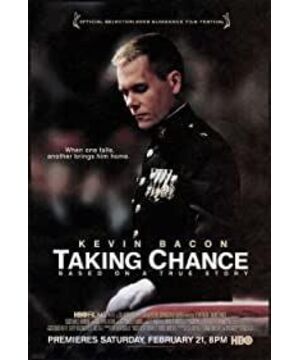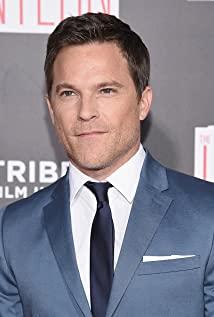Seeing that many of my friends in the front are arguing about the meaning of the death of the chance, and whether it is the justice of the US invasion of Iraq, I think that the purpose of this film is not here.
The whole point of the film is, in my opinion, the words of a Korean War veteran at the end: He wouldn't exist without your testimony. According to our materialist point of view, when a person dies, there is nothing left. If so, isn't all the etiquette on the escort's way superfluous? Why do passersby take off their hats, vehicles light up, and pedestrians stop? I think this is the ethics of a country. Chance joins the army, and it is the collective who makes combat decisions (I don’t use the country here, I just don’t want some people to mix the country with the government and political parties), this decision is elected by the whole people The commander proposed that the money was approved by the Congress of representatives of the whole people. For Chance, as a soldier, the job is to enforce that decision.
Soldiers are also a profession, and this profession has its own ethics. They use collective taxpayer money for food, housing, salaries, and training so that when the collective needs them, they will sacrifice their lives to execute decisions. I believe this is reasonable for any country's military. In military ethics, the execution of orders is work, and death is a possibility of work.
I think it is precisely because people understand in their hearts that when a person dies, nothing is left, but the collective is still there, and everyone else is still there. How to let the living understand the meaning of the death of the dead is the key. The preciousness of human life is self-evident. When a person dies, how to treat his body is also a very important matter. When I was watching the film, many images flashed through my mind, including the national mourning during the 5.12 earthquake last year. At that time, I was doing business at the stock exchange. At that moment, everyone stood up and bowed their heads, and some people kept crying. , this is a view of life, when a person dies, he should be respected at least.
The ethics of a country, I think, should be that living citizens have the right to be respected, and after they die, there should be a decent ceremony, which is also a kind of consolation for all living people, so that everyone understands that they are after death. will also be respected.
There are also ethics, such as the uniform of a profession, that should be respected. Behind this respect is loyalty to the profession. In the film, the escort would rather argue with the airport security than get out of the military uniform and be inspected in public. This is what it reveals. For example, the people's views on soldiers, I believe that those who stop and salute the coffin of Chance are not necessarily militants and supporters of combat decisions, but their respect for life is a basic common sense. Chance has fulfilled his promise to join the army, Is a man of his word.
From then on, I also thought that no matter what country, there should be some basic ethics, such as mutual concealment between father and son (Yu Dan mentioned in the Analects of Confucius that this country should not be like this, but she really didn’t understand how foreign laws were For example, taxpayers’ money should have detailed spending plans and audits afterwards, for example, the death toll after a major disaster should not be classified as confidential, for example, judges should only obey the law. . . . . . . .
Not much to say. I hope those high-level people who are in the sky and latitudes will see more of the people and things around them. For other countries, what can we learn and do better, so that our compatriots can live better, and citizens have the appearance of citizens. Sorry, far away. So be it.
View more about Taking Chance reviews











